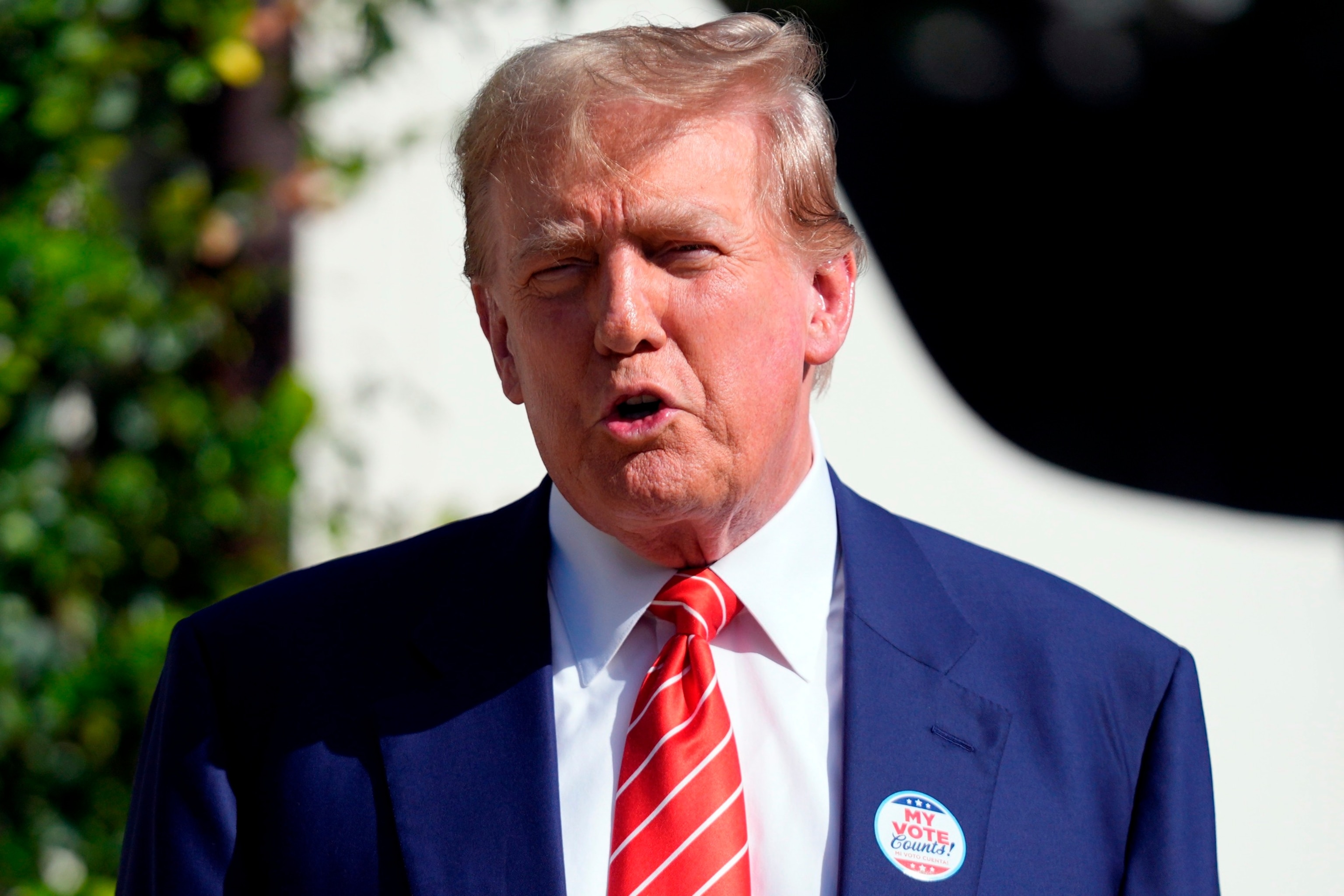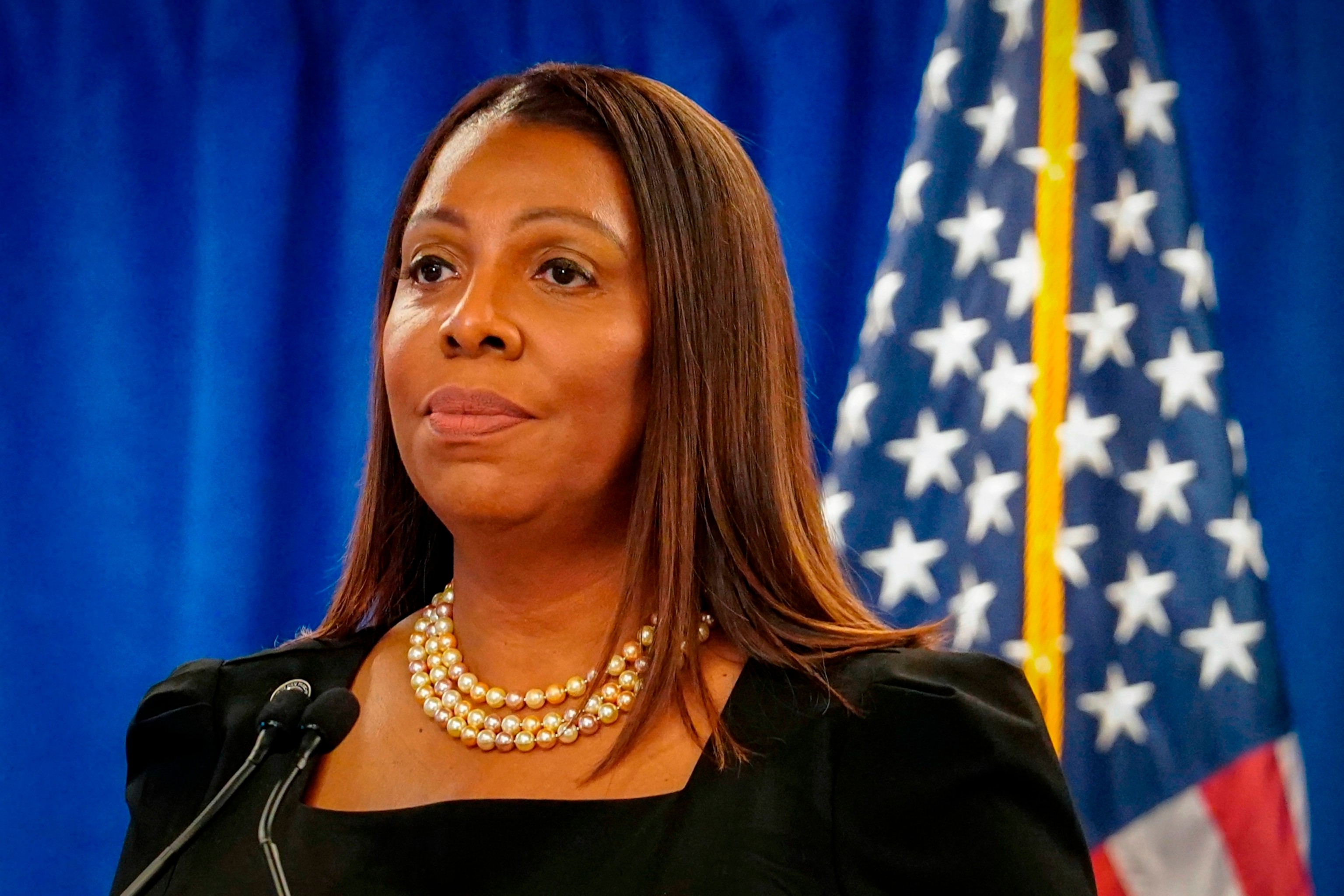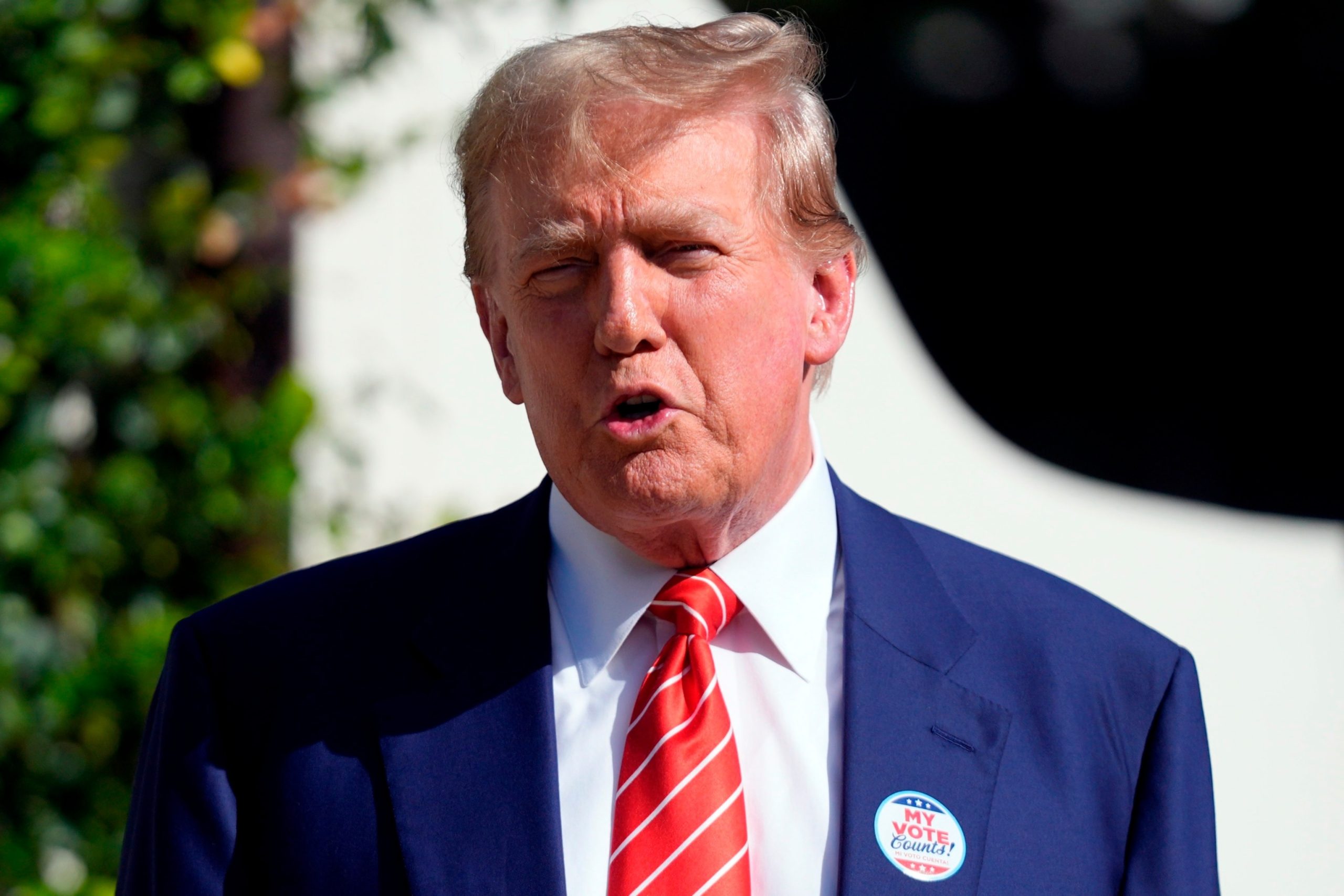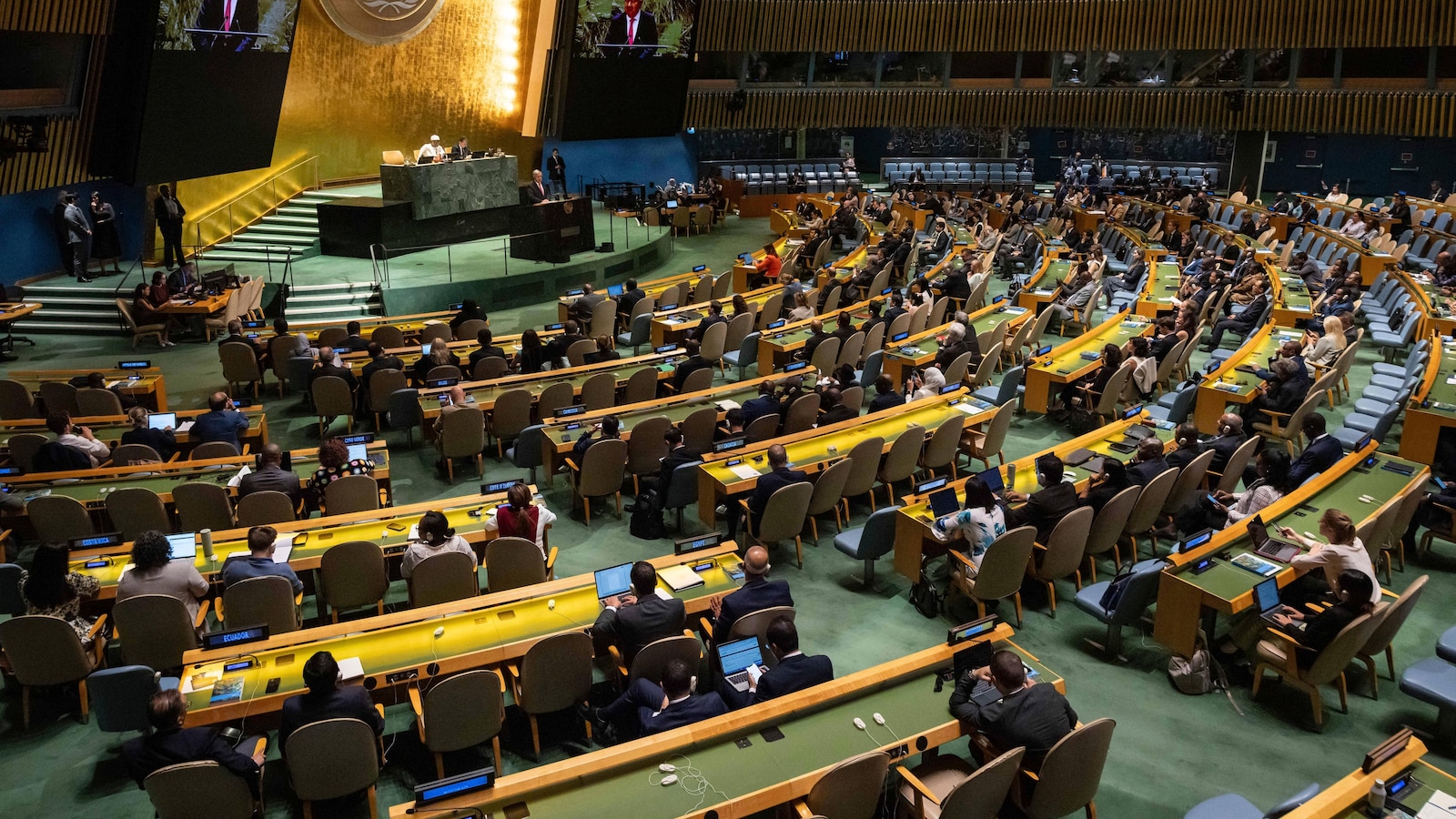New York Attorney General Letitia James is pushing back on Donald Trump’s “extraordinary” request for a stay of his $464 million civil fraud judgment, arguing the former president’s recent request was unreliable, procedurally improper and based on a flawed premise.
“There is nothing unusual about even billion-dollar judgments being fully bonded on appeal,” Senior Assistant Solicitor General Dennis Fan said in a filing this morning. “Defendants object to a possible ‘fire sale’ if they were to sell assets to generate cash to use as collateral for a bond or as a deposit —but the alternative would be to shift the risk of executing on defendants’ illiquid assets to OAG.”
Earlier this week, Trump’s lawyers argued that the former president is unable to secure a bond for the judgment – having been rejected by over 30 insurance companies – due to its size and his need to post properties as collateral.

Republican presidential candidate former President Donald Trump speaks after voting in the Florida primary election in Palm Beach, Fla., March 19, 2024.
Wilfredo Lee/AP
The AG argued that the former president has failed to demonstrate his effort to secure a bond using properties as collateral, suggesting the issue is a product of Trump’s doing because his “holdings are not nearly as valuable as defendants claim.”
“Defendants supply no documentary evidence that demonstrates precisely what real property they offered to sureties, on what terms that property was offered, or precisely why the sureties were unwilling to accept the assets,” the filing said. “As far as the Court can infer, sureties may have refused to accept defendants’ specific holdings as collateral because using Mr. Trump’s real estate will generally need ‘a property appraisal’ … and his holdings are not nearly as valuable as defendants claim.”
If Trump is unable to secure a single bond for the $464 million judgment, James said the former president could attempt to secure multiple smaller bonds – “$100 or $200 million apiece” – or consent to have his real-estate interests held by the Supreme Court to satisfy the judgment.

New York Attorney General Letitia James speaks during a news briefing, Feb. 16, 2024, in New York.
Bebeto Matthews/AP
“The use of real estate as collateral for an appeal bond is hardly impossible as a general matter,” the filing said.
The AG’s filing also criticized Trump’s attempt to introduce two affirmations from both Trump Organization General Counsel Alan Garten — who James alleged was “personally involved in the fraudulent and illegal conduct that gave rise to the judgment in this case” – and Trump’s broker Gary Giulietti. James characterized the two affirmations as “unreliable.”
“The affirmation from Gary Giulietti does not disclose that he was an expert witness for defendants at trial or that Supreme Court found Mr. Giulietti’s trial testimony to lack credibility,” the filing said. “Moreover, Mr. Giulietti has a ‘personal financial interest in the outcome of the case,’ because his company earns commission from the Trump Organization, including $1.2 million in 2022.”
Judge Arthur Engoron in February ordered Trump to pay $464 million in disgorgement and interest after holding him liable for doing a decade’s worth of business with fraudulent financial statements that overvalued his real estate holdings and hyped his wealth. Trump was also barred from leading any New York company for three years. His sons Donald Trump Jr. and Eric Trump were also fined $4 million apiece and barred for two years. They denied any wrongdoing.
New York Attorney General Letitia James has taken a bold stance against President Donald Trump’s attempt to delay a $464 million fraud judgment against him. The judgment stems from a lawsuit filed by the state of New York accusing Trump and his family of defrauding investors through their involvement in a dubious marketing scheme known as Trump University.
The lawsuit, which was filed in 2013, alleged that Trump University lured students into paying thousands of dollars for real estate seminars with false promises of access to Trump’s real estate secrets and mentorship. The program was ultimately deemed a scam by the courts, leading to the massive judgment against Trump and his family.
In response to the judgment, Trump’s legal team has requested a delay in payment, citing the ongoing legal battles and financial strain caused by the COVID-19 pandemic. However, Attorney General James has vehemently opposed this request, arguing that Trump should not be given special treatment simply because he is the President.
James has argued that delaying the payment would only serve to further harm the victims of Trump University’s fraud, many of whom are still waiting for restitution. She has also emphasized the importance of holding powerful individuals accountable for their actions, regardless of their status or wealth.
The case has sparked a heated debate over the role of the justice system in holding public figures accountable for their actions. Critics of Trump have praised Attorney General James for her unwavering commitment to seeking justice for the victims of Trump University’s fraud, while supporters of the President have accused her of engaging in political witch hunts.
Regardless of the outcome of this particular case, it serves as a reminder of the importance of transparency and accountability in our legal system. The Attorney General’s decision to challenge Trump’s request for a delay in payment sends a powerful message that no one is above the law, no matter how powerful or influential they may be.



